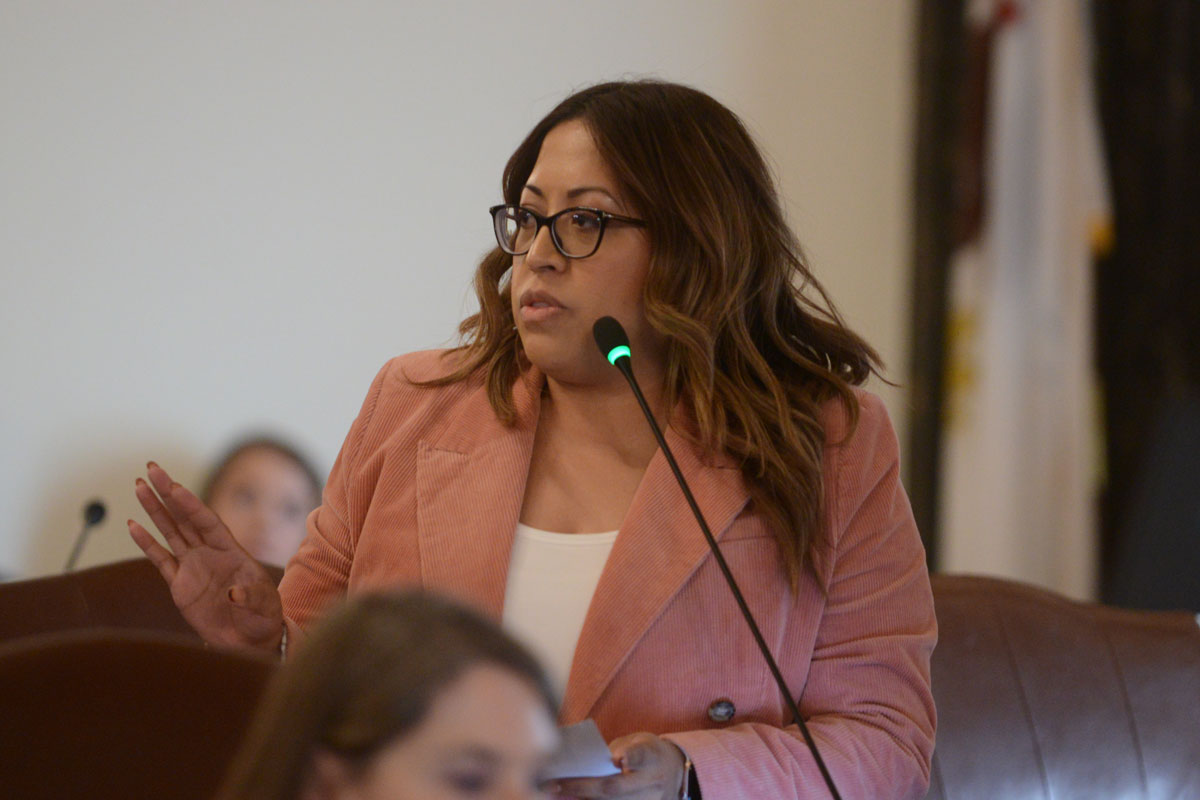
SPRINGFIELD – Taking another leap toward enshrining safe and secure access to reproductive health care, State Senator Celina Villanueva championed a measure to end deceptive and misleading practices at crisis pregnancy centers.
“There is a war on people’s ability to make informed decisions about their reproductive health care,” said State Senator Celina Villanueva (D-Chicago). “Workers at crisis pregnancy centers should not be able to deceptively mislead women into making decisions that aren’t the best for them or their futures. When you go to the doctor and someone appears to be medical staff, you trust they are medical staff. You trust your ability to make autonomous, informed, evidence-based decisions. Reproductive health care should be no different.”
Senate Bill 1909 prohibits the use of deceptive practices to interfere with an individual seeking to gain entry or access to the provider of an abortion or emergency contraceptives, induce an individual to enter a limited services pregnancy center, in advertising, soliciting, or otherwise offering pregnancy-related services, or in providing pregnancy-related services. Villanueva worked in tandem with Attorney General Kwame Y. Raoul to prevent such deceptive practices at crisis pregnancy centers.
“I experienced deceptive crisis pregnancy center tactics firsthand on a visit to a Planned Parenthood health center in Illinois. People who appeared as though they might work there were outside attempting to divert us away from the health center,” Attorney General Kwame Raoul said. “Patients report going to crisis pregnancy centers – sometimes even receiving exams and ultrasounds – thinking they were visiting a different clinic that offers the full range of reproductive care. This is an extreme violation of trust and patient privacy that should not occur in our state. I would like to thank members of the Senate for passing legislation to help my office hold those engaging in deceptive practices accountable.”
While crisis pregnancy centers may advertise themselves as health care clinics, many of these facilities provide very limited services, such as basic ultrasounds and counseling intended to discourage and limit access to abortion. Some centers are located near clinics that provide comprehensive reproductive health care and use names similar to these clinics in order to misdirect patients. Many provide misleading information overstating the risks associated with abortion, including conveying false claims that abortion causes cancer or infertility.
“Crisis pregnancy centers will often look like an abortion clinic, but often these professionals are not licensed and do not have licensed staff who can carry out proper medical procedures that will benefit women in need,” said Villanueva. “Deceptive practices can cause more harm than help and we need to hold those accountable who are at fault and responsible for the mental, physical and emotional stress they are causing women all across the state.”
Senate Bill 1909 passed in the Senate and is headed to the House for further consideration.













 © 2026 Illinois Senate Democratic Caucus
© 2026 Illinois Senate Democratic Caucus